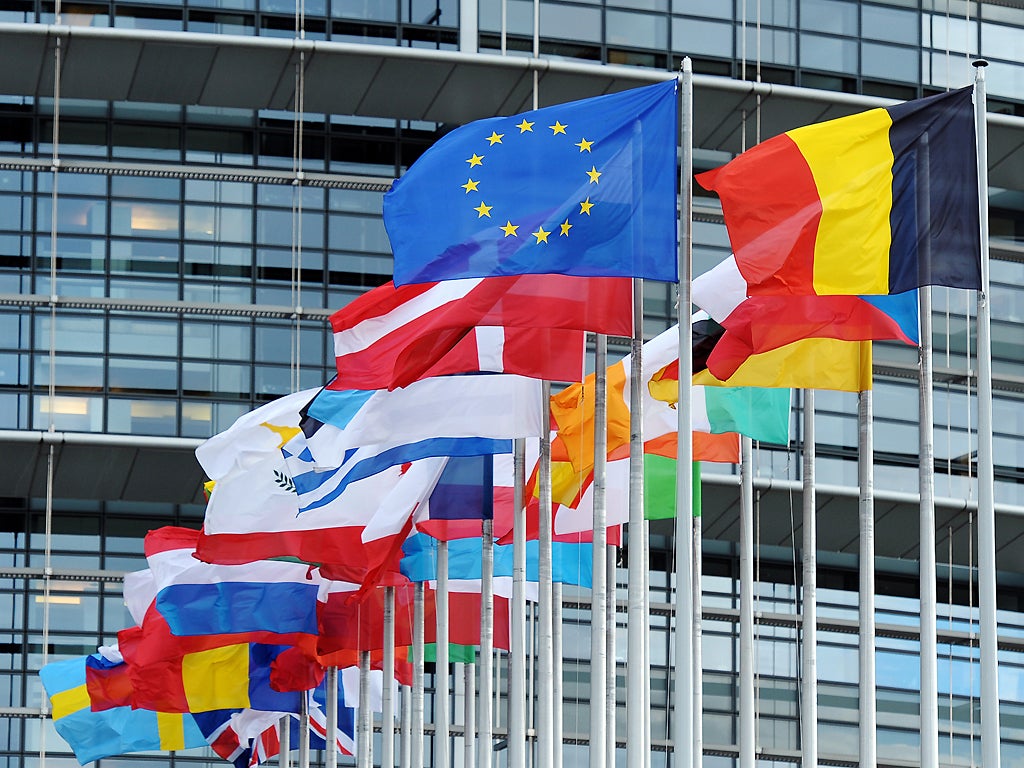Labour and others have played a shameful role in the EU budget debate
The Governments defeat over the EU budget was a victory for parochial pettiness, not democracy, as some have suggested

The Government’s defeat over the EU budget on Wednesday wasn’t a return to the bad old days of John Major, still less was it a victory for democratic politics sensing the mood of the public, as some of the supporters of the vote against David Cameron would have us believe.
It happened precisely because it was meaningless. Tory rebels could vote for a resolution demanding the Government seek a real cut in the EU budget because it didn’t actually tie the Government’s hands. Labour could vote with the rebels because the vote wasn’t going to make any difference. It was just embarrassing for the PM.
The Foreign Secretary, William Hague, and his fellow Cabinet members could equally dismiss it, since the real negotiations won’t take place until the summit later in the month, and even then a decision can be delayed until February. By then, so they argue, the vote will be more meaningful and wiser heads will prevail.
In your dreams, Mr Hague. Wednesday’s vote matters for what it didn’t say, not what it did. In the whole debate, there was no discussion about the EU budget itself or the arguments raging on the Continent, never mind here, about the shape of spending plans for the next seven years.
Its puerile nature was almost unbelievable. There’s not an MP who spoke or voted in the Commons who doesn’t say that the most important external problem facing the country today is the difficulties being encountered by the euro and the resulting economic slowdown in the EU. Yet the very same politicians, from the Prime Minister downwards, couched their argument entirely in terms of why we were suffering and why we shouldn’t therefore pay more for Europe. Defending “British national interests” is seen entirely in domestic terms as if we were a self-contained island.
The parochial pettiness of this was most manifest in the Labour Party. The last time it launched such an assault on a government over the EU was over the Maastricht Treaty. Then the opposition leader, John Smith, berated the then Prime Minister, John Major, for not being European enough in his exclusion of the Social Chapter from the agreement.
Now the current opposition leader, Ed Miliband, assaults the Prime Minister for doing too much by trying to freeze the budget in real terms, instead of reducing it. The shadow Chancellor, who argues for sustaining government expenditure as the means of fighting recession, is against Europe’s doing the same thing, despite the fact that he blames the eurozone slowdown for some of our economic woes.
The party that once espoused the benefits of a widening Union and a more caring community is opposing a budget which, in part, reflects the expansion of European membership and the need to help the poorer regions.
There is a debate to be had about the EU budget. There are real arguments – which are, in fact, being held – over the extent to which funds still go to the richer members, the size of agricultural support and the need to increase investment while cutting current spending. But while we join hands with the Swedes, the French and the Germans to declare the need for cuts, we refuse to join in the actual discussions which might improve things.
Our contribution, as even our European allies on the subject of the budget now point out, is entirely negative. Wednesday’s vote and the fact that the Labour Party, of all people, joined with the Tory eurosceptics will only increase the sense among our fellow members that Britain has just become a spoiler in its approach to the EU in its hour of need.
You can’t keep racism out of Asian politics
The most sympathetic explanation for Aung San Suu Kyi’s continuing silence over the escalating violence between Buddhists and Muslims in Burma is that she holds to the belief that it is better go along with a liberalising authoritarian government than oppose it outright and risk all.
The other explanation, however, is a more racial one. Neither she nor her party has ever expressed that much concern for the plight of Burma’s minorities, the Rohingya Muslims, the Karen, Shahn or the Mon, so ruthlessly suppressed by the military regime since independence.
But then racism is a recurring feature of Asian politics. It’s there in Japan’s attitude to immigration. It comes out in the response of the Han majority in China whenever there is trouble with the Tibetans or Uighurs. You can see it in the treatment of the Burmese labourers in Thailand and the immigrant labour in Singapore.
The colonial powers didn’t help by favouring certain minorities as their chosen helpmates. But it reflects a brutal truth in today’s world: the ethnic majorities anywhere, and their educated elite, rarely have much concern for minorities of a different race.

Join our commenting forum
Join thought-provoking conversations, follow other Independent readers and see their replies